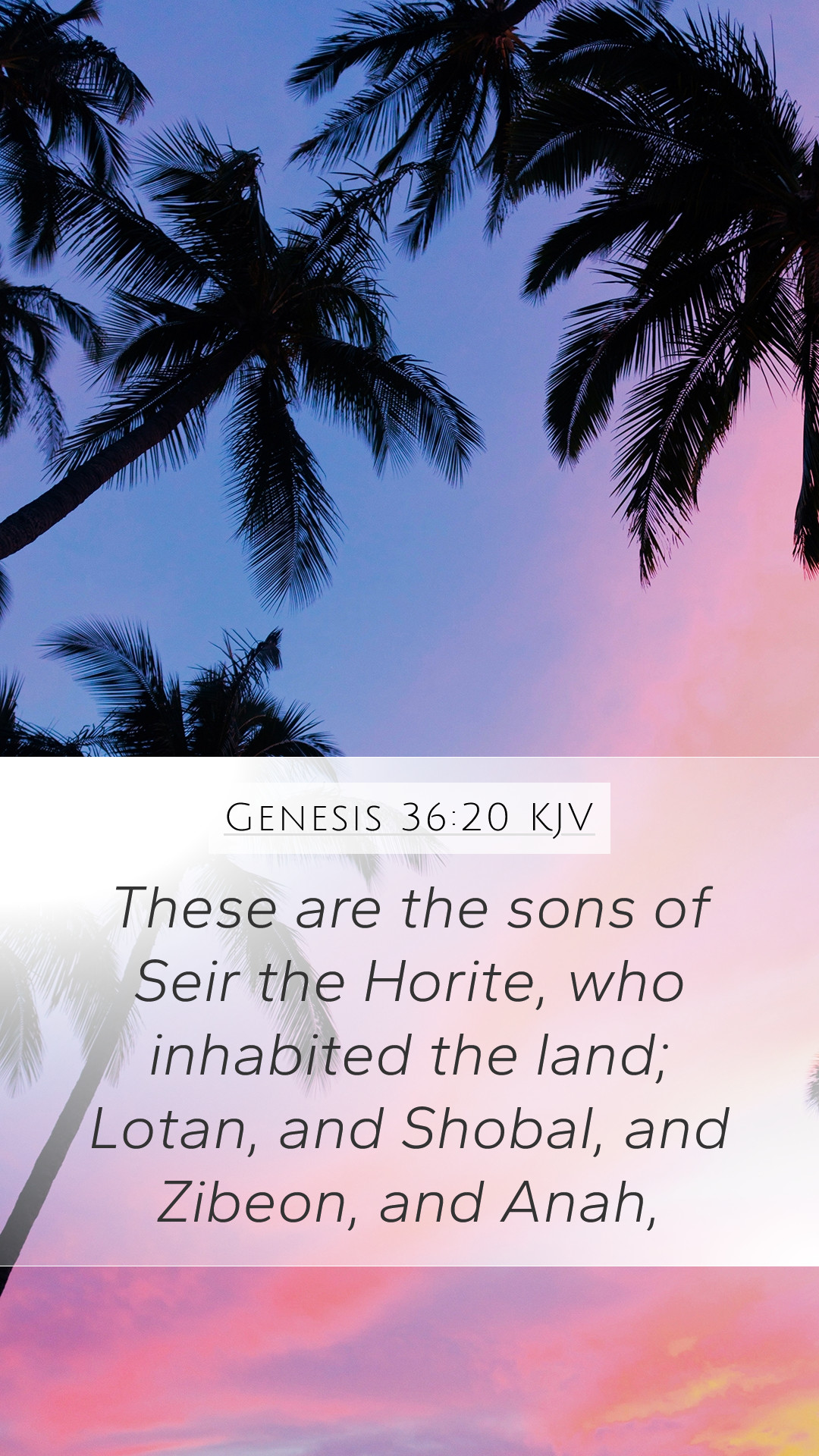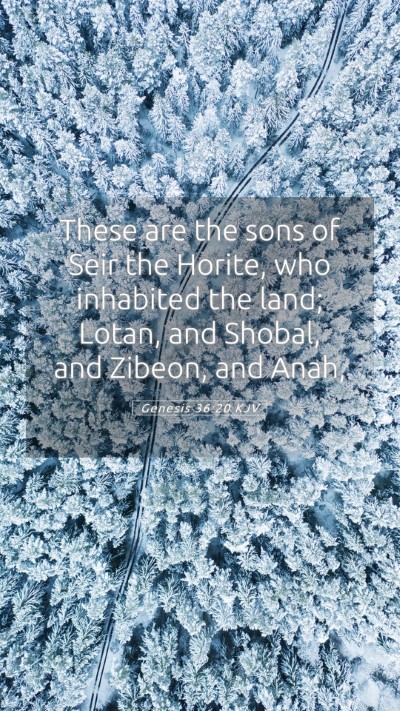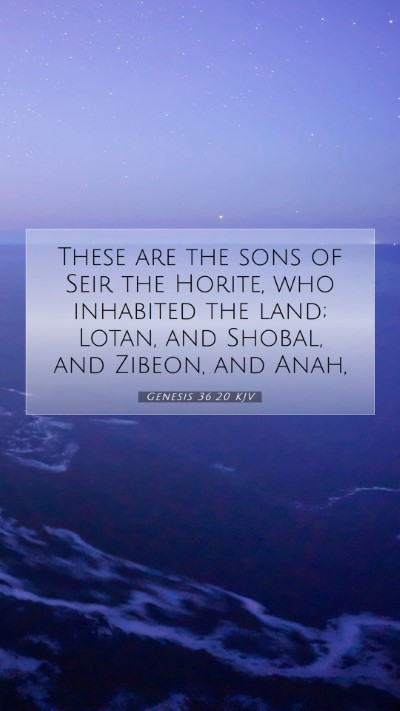Understanding Genesis 36:20
Genesis 36:20 reads: "These are the sons of Seir the Horite, who inhabited the land; Lotan and Shobal and Zibeon, and Anah." This verse introduces us to the descendants of Seir the Horite, emphasizing their significance in the historical and geographical context of the biblical narrative.
In this Bible verse analysis, we explore the implications of Genesis 36:20 by drawing insights from prominent public domain commentaries including those by Matthew Henry, Albert Barnes, and Adam Clarke.
Commentary Insights
-
Matthew Henry's Commentary
Contextual Understanding: Henry highlights the importance of understanding the genealogy presented in this verse. He explains that genealogies often serve to establish the historical significance of certain groups and their territories, particularly as they relate to the Israelites. The Horites, as descendants of Seir, are noted for occupying the land before the Israelites took possession of this territory.
-
Albert Barnes' Notes
Genealogical Importance: Barnes elaborates on the fact that the ancestry listed connects directly to the broader narrative of the biblical account. This genealogy points to the coexistence of different peoples in the land, giving insight into interrelations among tribes. The names mentioned, such as Lotan and Shobal, are significant as they may reflect particular tribal dynamics and cultural assimilation.
-
Adam Clarke's Commentary
Historical Context: Clarke provides a deeper historical context by discussing the Horites' lifestyle and their location in Edom. He mentions that understanding the dwellers of Seir is essential as it sets the stage for later conflicts and developments involving the Israelites. The introduction of Seir's descendants signifies both a historical footprint and the lineage that would impact surrounding nations.
Significance of Genesis 36:20
This verse is significant not only for its genealogical content but also for its indication of the sociopolitical landscape at the time. The Horites represent a culture and society that existed alongside the Israelites, shedding light on the complexities of territorial claims and identity.
Understanding this Bible verse meaning through the lens of these commentaries provides valuable insights for Bible study groups and individuals seeking Bible study resources for further exploration.
Related Cross References
- Genesis 14:6 - Further discussion on the Horites and their territories.
- Deuteronomy 2:12 - Reference to the descendants of Esau and their territorial claims.
- Genesis 36:31 - Continuation of the genealogy concerning the kings that ruled in Edom.
Conclusion
In conclusion, Genesis 36:20 serves as a bridge connecting various historical narratives in the Bible. When conducting Biblical exegesis, especially for understanding Scripture related to genealogies, it's essential to contextualize these messages within the larger story being told. This verse demonstrates how genealogy plays a critical role in understanding identity, inheritance, and divine providence throughout Scripture.
As you explore the meaning of Bible verses, remember that understanding genealogies like that of Genesis 36:20 enriches your Bible study insights and deepens your appreciation of the intricate history conveyed through the Scriptures.


